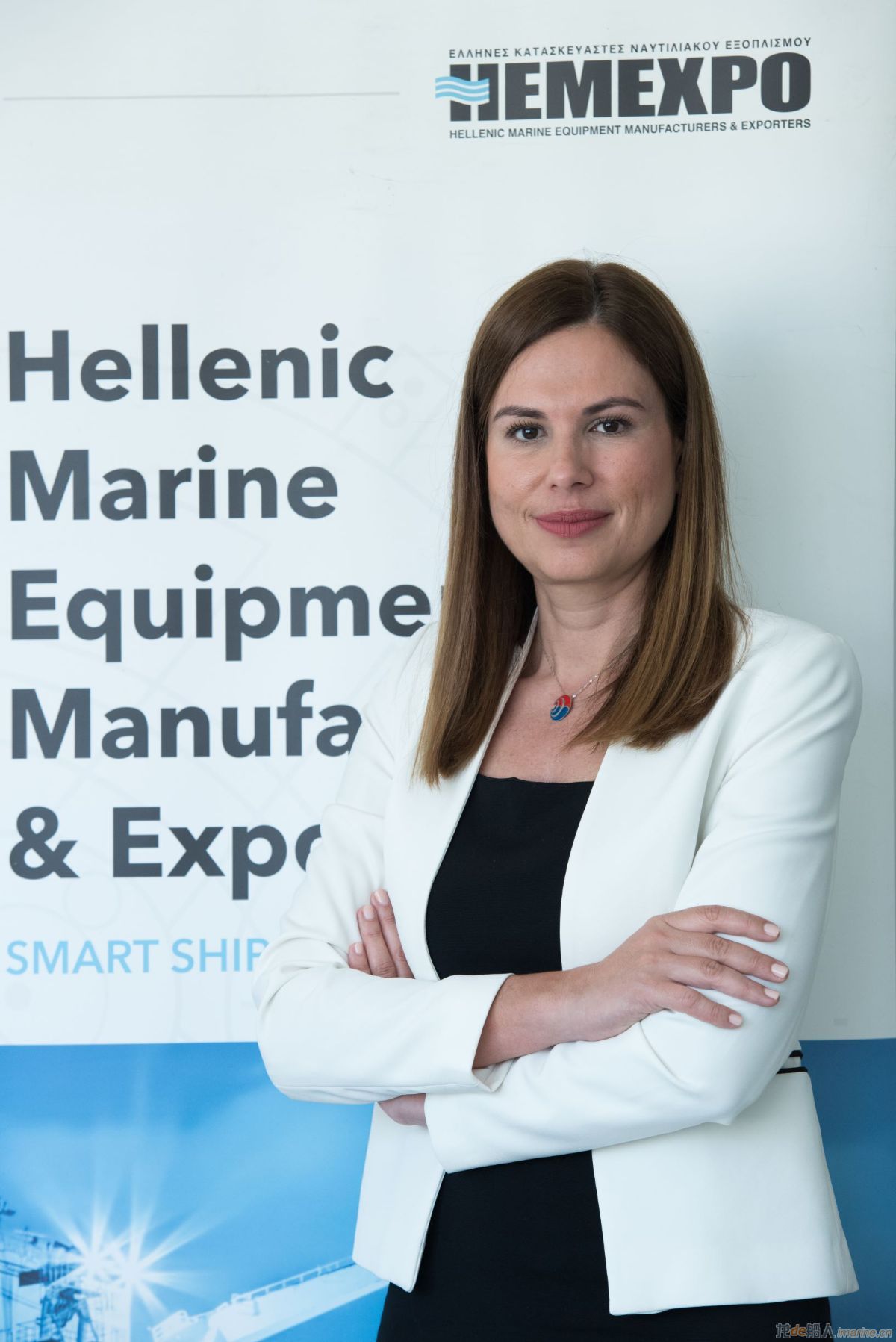|
|
HEMEXPO President, Helen Polychronopoulou, says Greek marine technology developers see collaboration between shipping industry stakeholders as the key to innovation and decarbonisation.
Helen Polychronopoulou has dedicated her career to the successful growth and development of the marine equipment manufacturing industry in Greece and today leads HEMEXPO - Hellenic Marine Equipment Manufacturers and Exporters.
 -->
-->
Established in 2014, HEMEXPO has quickly developed a pivotal role in representing Greek marine technology specialists by reinforcing links worldwide with ship owners and operators, class societies and shipyards.
As current Executive Vice President at Environmental Protection Engineering, Business Development Manager for ballast water technology company ERMA FIRST and President of METIS Cyberspace Technology SA, Helen has a keen understanding of HEMEXPO member needs. Working with external organisations on the level of partnership stimulates technological innovation, she says.
“An initial aim for HEMEXPO was to build on shipbuilding momentum in Asia so that members were given every opportunity to equip the Greek vessels being built there,” she says. Over the last 15 years, it is estimated that over 1,000 Greek-owned vessels have been built in China alone.[1]
“The subsequent Greek economic crisis created an uncertain business environment which intensified the need to remain competitive,” Helen adds. “We were able to invest in joint marketing activities, share business intelligence and exchange information, bringing opportunities around the world.”
Unified HEMEXPO platform
HEMEXPO also made the supply chain a specific area of focus, working closely with its members’ customers to understand their needs and ensure their satisfaction on product quality, delivery times and on meeting shipyard specifications.
“However, right from the outset we were also convinced that a unified platform would allow us to make a greater contribution to maritime dialogue and interact with other industry stakeholders on an equal footing,” the HEMEXPO President says.
In addition to its membership of Sea Europe – representing Europe’s collective marine equipment manufacturers - HEMEXPO is also part of the influential Cyprus Shipping General Council.
“As well as the surge in new orders going to Asian shipyards, we saw a significant increase in shipbuilding for the leisure and cruise industry, with resulting high demand for equipment and products,” says Helen. “Many HEMEXPO members are active in cruise projects, especially in Portugal and Croatia. Clearly, the last 12 months have been extraordinarily challenging, but projects are still continuing for smaller, boutique cruise ships that can be used for expedition cruises with fewer passengers.”
Far-reaching collaboration
In May last year, HEMEXPO signed a Memorandum of Understanding and Cooperation with the Hellenic Association of Space Industry (HASI) and the Hellenic Association of Mobile Applications Companies (SEKEE-HAMAC). With robotics, AI, new lightweight composite materials and green propulsion solutions continuing to offer new possibilities in ship design, the associations foresee the basis for collaborative innovation that can benefit the shipping sector worldwide.
Never far from the surface where marine technology is concerned is the need for shipping to live up to its commitments to environmental compliance. Expected Marine Environment Protection Committee approval of the Energy Efficiency Existing Ship Index in June 2021 is just the latest aspect of IMO plans to ensure shipping’s CO2 emissions are cut in half by 2050.
“We are seeing a revolution in the shipping industry that compares to the switch from sail to steam,” she says. “However, what is different is that this is not going to be the kind of transformation where one size fits all; we are going to need to accept a high degree of diversification.”
Mature green agenda
Contrary to views expressed by some commentators, Helen says the shipping industry today exhibits “a welcome openness to new ideas, a readiness to listen and discuss, and a willingness to trial new technologies on board vessels.”
The momentum is such that the marine equipment industry must be quick to respond and ready for what happens next, she says. “This is why investment in collaborative research and development projects is so important. All of HEMEXPO’s members are working on a new solution in one way or another and all need to ensure solutions are efficient and reliable.
“It is not just the products themselves: the entire maritime mentality is changing. We now have the Poseidon Principles as a new global framework for responsible finance that will help shipping achieve the IMO’s climate objectives and provide incentives for decarbonisation. Today, banks see environmental, social and governance (ESG) as part of their criteria for investments.
“Ultimately, companies that do not recognise the new reality will not survive. Of course, this is a challenge for the whole maritime sector but it has direct consequences for equipment suppliers, whose best option is to be part of collaborative efforts to identify opportunities, develop and trial new technologies and develop insights into what is going to happen next.”
|
|